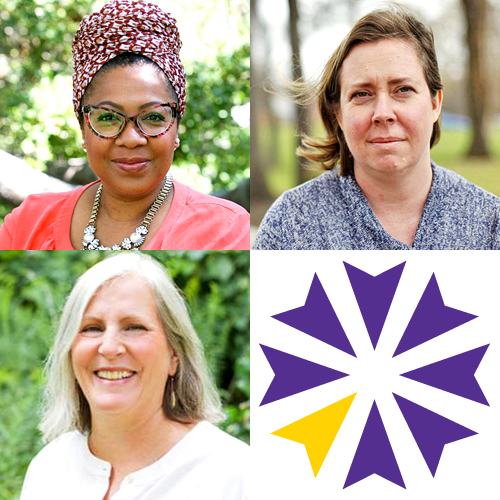 IBCLC Detailed Content Outline: Clinical Skills Focused CERPs - Section VII
IBCLC Detailed Content Outline: Clinical Skills Focused CERPs - Section VII
Access CERPs on Clinical Skills for the IBCLC Detailed Content Outline recertification requirements. Enjoy convenient on-demand viewing of the latest Clinical Skills focused IBCLC CERPs at your own pace.
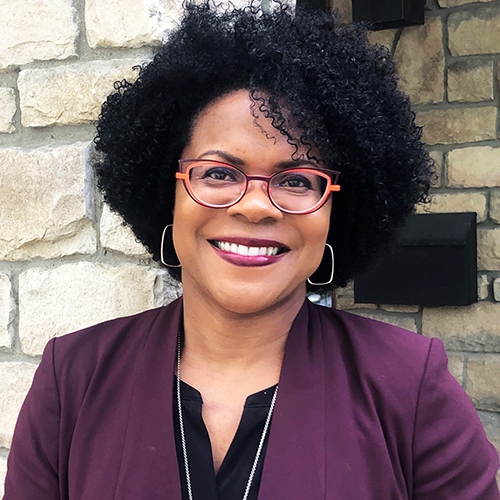
Walking with NICU Families Through Their Infant Feeding Journey

Maxine graduated with a nursing degree followed later on by her Master of Nursing in 2017 both from the University of Calgary. Maxine was a public health nurse in Calgary for 13 years, where providing face to face contacts with new families soon after discharge is a standard of care. Most families named feeding challenges as their biggest concern. In turn, Maxine developed a passion for lactation support, worked towards and attained the International Board-Certified Lactation Consultant designation, in order to assist families to reach their feeding goals.
In 2016, Maxine made the transition from public health to acute care where she currently works in all areas of a large Children’s hospital to support dyads with a myriad of lactation concerns but is primarily in the NICU. Maxine’s responsibilities includes orienting new staff to teaching a provincial lactation education within a team. Maxine is passionate about sharing knowledge with aspiring LCs and is a mentor to many. Maxine participates on numerous committees to update lactation and feeding policies, procedures and documents. Furthermore, she volunteers on provincial and national breastfeeding committees.
To graduate from the Neonatal Intensive Care Unit (NICU) infants are required to be adequate feeders. Feeding is a learned skill for NICU babies that is expected to “be there in waiting” after a long medical and or surgical admission. Effective feeding and subsequent weight gain in the NICU are the measures and skill to which a discharge ticket home is granted. Feeding can sometimes be overlooked in regards to its role in infant well being and parental confidence. Infants are admitted to surgical level 3 NICUs for many reasons, including prematurity, necrotising enterocolitis, intestinal perforations, gastroschisis, duodenal atresia, omphaloceles, therapeutic hypothermia, seizures, and oesophageal atresia /fistulas including genetic or metabolic abnormalities. Many of these illnesses have a very long course toward healing and recovery before oral feeding is introduced.
Lactation Consultants in the NICU are well positioned to ensure support of the family and medical team along the way, to optimize successful oral feeding upon discharge home.
This talk will look at some of the ways that parental presence and mom’s milk is therapeutic in the NICU, and how the progression of breastfeeding can be the ticket to going home.

View Details / Enroll
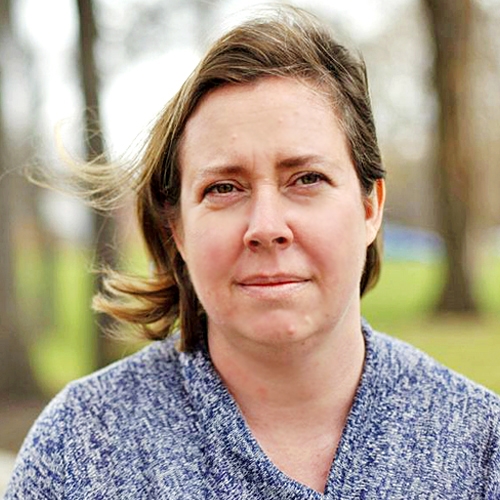
Watching Our Words: Is Risk-Based Language Always the Right Choice?

Michelle Pensa Branco MPH IBCLC is a lactation consultant and public health advocate. In addition to her clinical practice, which has included in-hospital, outpatient and private practice settings, she advocates for improved maternal-child health practices at the local, national and global level. She has a particular interest in the impact of trauma to breastfeeding families, models of peer support to improve breastfeeding outcomes and the application of health communication principles to the promotion and protection of breastfeeding. Michelle serves as the Director of Peer Support Programs and provides clinical lactation expertise for Nurture Project International, the only international NGO focused exclusively on infant feeding in emergencies. With Jodine Chase, she co-founded a Canadian non-profit organization, SafelyFed Canada. She is also an active member of the Ontario Public Health Association’s Breastfeeding Promotion Working Group. Michelle has previously served as the Vice-Chair of La Leche League Canada, the Communications Director for the Canadian Lactation Consultants Association as well as the Toronto Coordinator of INFACT Canada. When she is not travelling for work, Michelle stays close to home, living with her family just outside Toronto, Ontario, Canada.
Topic: Keeping the Fox Out of the Chicken Coop: Safeguarding Your Reputation Against Baby Feeding Industry Influence - [View Abstract]
Topic: Playing Well with Others: Collaborating in High Conflict/Low Trust Settings - [View Abstract]
Topic: Watching Our Words: Is Risk-Based Language Always the Right Choice? - [View Abstract]
Within the lactation world, it is widely accepted that optimizing infant feeding practices and normalize breastfeeding, we must frame breastfeeding as the physiological norm and not breastfeeding as the risk behaviour. For example, breastfeeding does not reduce the risk of type II diabetes, but rather not breastfeeding increases the risk of type II diabetes. Most of us have had this framing drilled into us during our training and can deftly turn around any headline to reflect the correct wording.
It is, indeed, scientifically correct that breastfeeding is the physiological norm for human: artificial feeding is no more “normal” for the human baby than using a wheelchair to be mobile. However, health communication is about more than delivering scientifically accurate facts to the target population. In motivating parents to initiate breastfeeding and then maintain exclusive breastfeeding for 6 months and alongside complementary foods for at least 2 years and beyond, the science of health behaviour is often overlooked.
In this session, we will discuss some of the major models of health behaviour change and how risk is perceived and acted up on within these models, drawing from both maternal-child health and other public health. We will review the rationale for using risk-based language as well as the evidence for different perspectives, including the use of social marketing strategies.
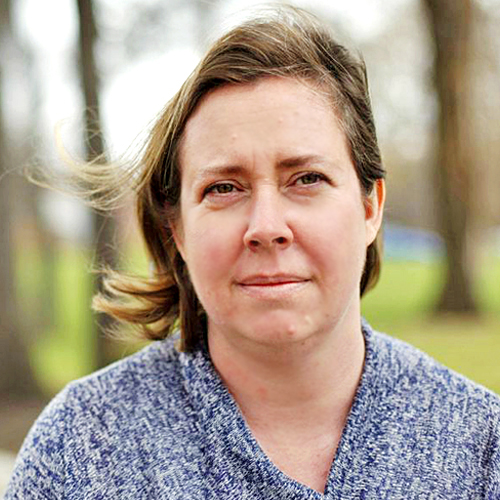
View Details / Enroll

Weaning: Supporting Families Stopping Lactation and/or Ending Their Breastfeeding/Chestfeeding Relationship

Joy MacTavish, MA, IBCLC, RLC is an International Board Certified Lactation Consultant and certified Holistic Sleep Coach focusing on the intersections of infant feeding, sleep, and family well-being. Through her business, Sound Beginnings, she provides compassionate and evidence-based support to families in the greater Seattle area, and virtually everywhere else. She entered the perinatal field in 2007 as birth and postpartum doula, and childbirth and parenting educator. Joy holds a Master of Arts in Cultural Studies, graduate certificate in Gender, Women and Sexuality Studies, and two Bachelors degrees from the University of Washington. She enjoys combining her academic background, analytical skills, and passion for social justice into her personal and professional endeavors. Joy serves as an Advisory Committee Member and guest speaker for the GOLD Lactation Academy. When not working or learning, she can be found homeschooling, building LEGO with her children, or dreaming up her next big adventure.
Topic: Full-Term Breastfeeding/Chestfeeding: Benefits, Considerations, and Ways to Offer Support - [View Abstract]
Topic: Mindful Breastfeeding: How Lactation Professionals Can Support Calm and Connection - [View Abstract]
Topic: Sending Reports: What’s in it for IBCLCs? - [View Abstract]
Topic: Supporting Clients Facing Fertility Treatment - [View Abstract]
Topic: The Intersection Between Lactation, Sleep, and Family Well-Being - [View Abstract]
Topic: Weaning: Supporting Families Stopping Lactation and/or Ending Their Breastfeeding/Chestfeeding Relationship - [View Abstract]
While lactation support spans the time from the prenatal period through weaning, there is less available information about the process of weaning. We know that there are a variety of reasons why families need or desire to stop lactation. We also know that there are emotions and logistics involved in ending a breastfeeding/chestfeeding relationship. Depending on the goals, timeline, and individual context of each dyad there are a variety of factors that need to be considered by the family. Unfortunately, these families often feel that the clinical information and emotional support available for weaning is lacking.
Evidence-based support presented in a compassionate manner can make a world of difference to the individual's decision-making process and overall weaning experience. For lactation supporters and professionals, being able to support families who are stopping lactation and/or ending their breastfeeding/chestfeeding relationship is a vital skill. This presentation will offer research-based information about the reasons for weaning, steps lactation supporters and professionals can take when working with families, and scripts for compassionate phrasing while offering this important information and support.

View Details / Enroll

View Details / Enroll
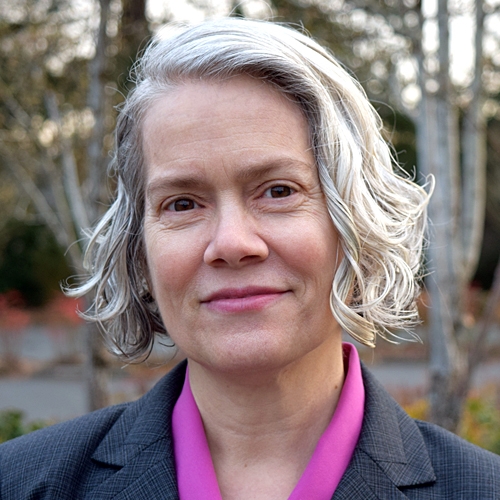
We’re Human, Too: Hidden Dynamics in Our Communication with Clients

Cynthia Good, MS Clinical Psychology, is an International Board Certified Lactation Consultant, Clinical Counselor, author, consultant, and internationally recognized speaker. She is the Director of LifeCircle Consulting, LLC and is Certified in Acute Traumatic Stress Management. She is based in the Seattle, Washington, USA area, where she formerly served as an Adjunct Professor in the Department of Midwifery at Bastyr University where she taught counseling skills and is a therapist at Sandbox Therapy Group where she works with children, adults, and families. Cynthia has a strong interest in the emerging field of lactational psychology. She brings the evidence and insights of psychology and lactation consulting to her presentations, providing information and teaching skills that are essential to understanding and effectively responding to the complex psychosocial realities of families living in diverse contexts. The focus of her presentations includes communication skills and counseling techniques for perinatal care providers; equity, diversity, and inclusion; infant feeding rhetoric; perinatal mental health; perinatal loss, grief, and trauma; ethics; serving as an expert witness in lactation-related court cases; cultural competence and humility; vitamin D; and more.
Topic: Cultural Competence or Cultural Humility? A Roadmap for Lactation Specialists - [View Abstract]
Topic: Heartbroken: Loss and Grief in the Perinatal Time Period - [View Abstract]
Topic: It Wasn’t Supposed to be Like This: Traumatic Birth, Traumatic Stress, and Breastfeeding - [View Abstract]
Topic: My Brain is Doing What? Bias, Ethics, and the Lactation Specialist - [View Abstract]
Topic: Perinatal Mental Health Screening: A Primer for Lactation Specialists - [View Abstract]
Topic: The IBCLC as Expert Witness: Role, Strategies, and Resources - [View Abstract]
Topic: The Rug Pulled Out from Underneath Me: Depression During Pregnancy and After Birth - [View Abstract]
Topic: Unpacking the Invisible Diaper Bag of White Privilege: An Overview of Racial Inequities in Breastfeeding Support - [View Abstract]
Topic: We’re Human, Too: Hidden Dynamics in Our Communication with Clients - [View Abstract]
On the best of days, providing quality lactation care to families in the perinatal time period is a challenging endeavor. IBCLCs, for example, are mandated to effectively utilize history taking and assessment skills, a broad collection of skills to assist the dyad, general problem-solving skills, skills related to techniques and devices, and skills needed to develop, implement and evaluate an individualized feeding plan in consultation with the client. Communication skills are the bedrock of everything a lactation supporter must do. Our training in this area logically tends to focus on understanding and responding to the human context of the dyad. However, there are two sides to communication in a lactation-related encounter: the client and the care provider. And, care providers are also human. In spite of our compassion and good intentions, we are impacted by the stresses, losses, and traumas of life, which can then impact our ability to work well with our clients. This presentation addresses common challenges in the lactation supporter’s own context (such as cognitive load, burnout, and traumatic triggers), their impact on communication, and strategies that can help us improve our ability to communicate effectively with our clients.

View Details / Enroll
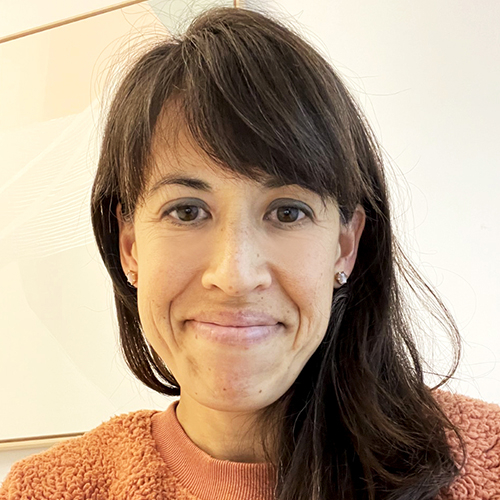
What Is Stopping Us? Kangaroo Care Implementation in Neonatal Intensive Care Units

Sarah Coutts is a registered nurse and lactation consultant with over 10 years experience in the neonatal intensive care unit. She currently is working as a Developmental Care Specialist in a NICU in Vancouver, Canada. Previous to this position Sarah was the Kangaroo Care Coordinator of an implementation science study to improve uptake of Kangaroo Care in NICUs in British Columbia. She is part of team of clinicians and researchers interested in understanding the barriers and enablers to Kangaroo Care from both the healthcare provider and parent perspectives and creating innovative strategies to increase knowledge and practice of Kangaroo Care in the NICU. She is passionate about raising awareness of the positive outcomes of zero separation between preterm and sick infants and their parents in the NICU.
Preterm infants are at increased risk for impaired neurodevelopmental outcomes (Stoll et al, 2010). There is evidence supporting the differences in outcomes related to how we provide care to preterm infants and the effects of the environment in which the care takes place. One of the most effective ways to reduce impaired infant outcomes is inviting parents to actively participate in care activities and provide Kangaroo Care (Boundy et al., 2016; Charpak et al., 2017). Despite international recommendations, empirical evidence, and an implementation science project focused on strengthening Kangaroo Care in neonatal intensive care units in British Columbia, Canada, implementation has been slow due to various barriers to uptake (Charpak et al., 2020; Coutts et al., 2021; WHO, 2020). A ‘one size fits all’ approach cannot guide Kangaroo Care implementation as it is a complex intervention and each NICU presents unique barriers and enablers. The uptake of Kangaroo Care relies on the involvement of parents and healthcare providers and their understanding and commitment to the evolving paradigm shift in neonatal care. This transition requires environmental and social supports, systems level change of philosophies of care, and assistance for healthcare providers to recognize their changing role.
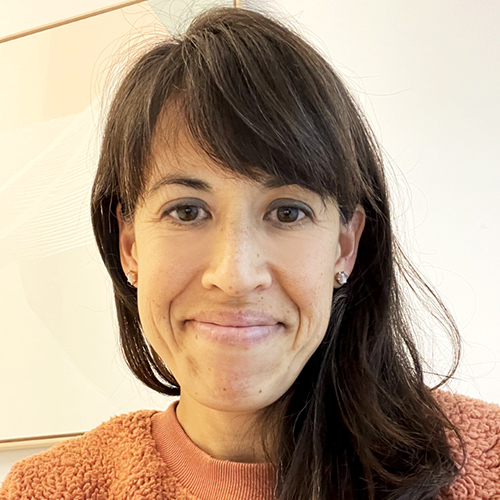
View Details / Enroll
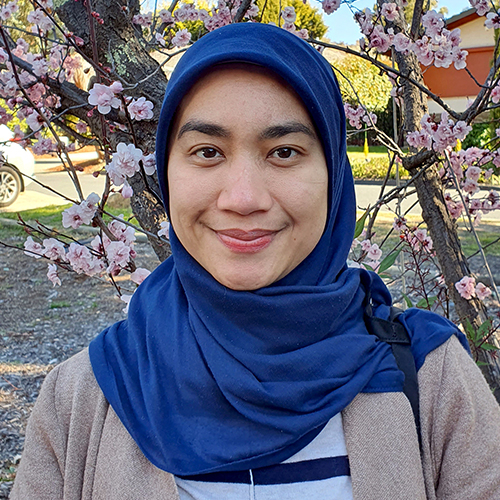
What’s New With Ten Steps to Successful Breastfeeding: Updates and Its Cost/Benefit Implications

Andini has bachelor and master degree in public health, majoring in hospital administration. She is an IBCLC and is currently undertaking PhD at the Australian National University. Her PhD thesis is looking at the facilitator and barrier of Baby Friendly Hospital Initiative implementation and accreditation in Indonesia and Australia. One part of her PhD was measuring its social value using Social Return on Investment.
Her journey began when she was pregnant with her first child, then found and attended full series of Indonesian Breastfeeding Mothers Association (AIMI)'s breastfeeding classes. She then decided to volunteered as breastfeeding counselor at AIMI.
With her work experience in hospital management consulting for 8 years and personal experience when her breastfed son undertook open heart surgery, she realized that not every hospitals provide adequate education and support for breastfeeding mother, either since pregnancy, during and after birth.
Andini was awarded Deeble Summer Research Scholarship from Deeble Institute for Health Policy Research Scholarship Program of Australian Healthcare and Hospitals Association (AHHA) in 2020 and published a Health Policy Issues Brief titled "Improving the Uptake of the Baby Friendly Health Initiative in Australian Hospitals" as the outcome. Thanks to her supervisor, Andini involved in working group for Breastfeeding Friendly Workplace Accreditation at ANU in 2018-2019 and involve in WBTi Australia since 2019. Currently living in Canberra Australia, Andini has been providing breastfeeding education and assistance for Indonesian mother-student, students' wives or any Indonesian women who live in Canberra.
In 2018, the World Health Organization (WHO) issued the first revision of the 1989 WHO/UNICEF Ten Steps to Successful Breastfeeding. Revisions are subtle, yet meaningful for implementation. A major change made by WHO is subdividing the Ten Steps into 1) critical management procedures, and 2) key clinical practices. Lessons have been learned on how the change has shifted the focus from health care staff to parents and families and shifted the responsibility for some elements of care from hospitals to the community. In this presentation, we will compare 1989 and 2018 Ten Steps, and explore its cost and benefit implications for diverse stakeholders, such as healthcare professionals, parents, family and government.
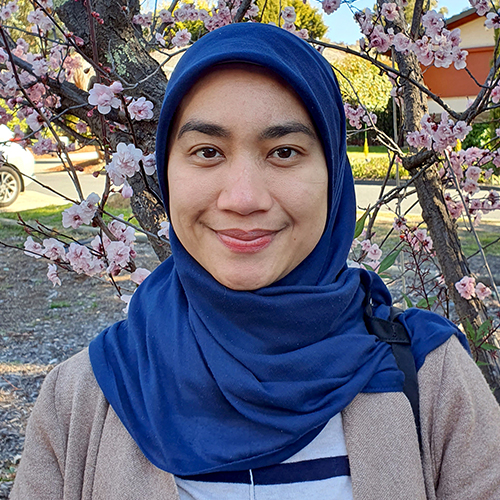
View Details / Enroll

What’s New With the International Code on the Marketing of Breast Milk Substitutes: It’s Not Just About Formula!

A Canadian living in France for more than 25 years, Juanita discovered breastfeeding with her three children and has never looked back.
She became a La Leche League Leader in 1997, and served on the boards of LLL France 2004-2008 and LLL Europe 2011-2018. She has been the regional representative of LLL Europe to WABA since 2007. Juanita became a lactation consultant in 2003 (IBCLC), recertifying in 2008 and 2013.
Juanita was the coordinator for the Journée Internationale de l’Allaitement (‘JIA’ – International Breastfeeding Conference for health professionals organized by LLL France) in 2003 and 2008. She helped create and implement the Peer Counsellor Programme in France (Programme relais allaitement- Prall).
The WHO Code is one of her passions! She has spoken on the Code at conferences around the world. Member of the Coordination française pour l’allaitement maternel (CoFam) since 2007, she was head of the Task Force on the Code and ethical questions. As a member of IBFAN *and GIFA, she was given the opportunity to participate in international meetings of the Codex Alimentarius and the OECD in Paris, as well as in week-long IBFAN conferences in Montecatini, Italy in 2007, and in Geneva in 2008. She also attended the Committee on the Convention on Rights of the Child in Geneva for IBFAN and helped prepare a country report on France underlining the importance of breastfeeding and the need to apply the Code (2009). She is an active member of IBFAN’s Global Working Group on Contaminants in Breastmilk. In 2018, she represented LLLI at the second NetCode meeting in Geneva.
The International Code on the Marketing of breast milk substitutes is the very cornerstone of breastfeeding protection, promotion and support, and an integral part of infant and young feeding policies around the world; yet it is often misunderstood or considered to be an out of date document with little relevance to breastfeeding issues today. Nothing could be further from the truth. The Code is updated regularly with additional resolutions voted at World Health Assemblies every two years, and covers far more than the marketing of breast milk substitutes in the first six months of life, but promotes optimal nutrition practices up to 36 months, and addresses conflict of interest with infant food companies. Indeed, the rapidly growing global market of breast milk substitutes, estimated at more than $70 billion in 2019, continues to undermine breastfeeding through its evermore aggressive and omnipresent marketing techniques, focused on parents, health professionals and health systems. The stakes are high – understanding and implementing the Code is an essential step towards ensuring optimal nutrition for infants and young children, whether breastfed or formula-fed.

View Details / Enroll


Liz Brooks is a private practice International Board Certified Lactation Consultant (IBCLC) and licensed lawyer, with expertise in criminal, administrative, non-profit, ethics, and lactation-related law. Liz offers in-home lactation consultations, and bedside care and teaching in two Baby-Friendly-designated hospitals.
She has been a leader in organizations for IBCLCs, breastfeeding promotion, and non-profit human milk banking. She authored the only textbook on legal and ethical issues for the IBCLC, and writes on health care ethics, equity, and conflict-of-interest in several books, blogs, and peer-reviewed journals.
She is a popular international conference speaker, offering practical tips with wit and wisdom for anyone who works with lactating and human milk-using families. Liz self-identifies as a cisgender hetero white woman with unearned privilege, and uses she/her/hers pronouns.
Topic: Using a Cool Head When You’re on the Hot Seat: Ethical and Legal Topics That Make Us Sweat, and How to Avoid Getting Burned - [View Abstract]
Topic: What’s Too “Friendly” for an IBCLC on Social Media? - [View Abstract]
Topic: Whiners and Deniers: Ethics and Diplomacy in Difficult Cases - [View Abstract]
It's all about the Internet! Families in 2015 want to be connected to their network of families and friends. They use Internet-accessing devices and social media to share news, gather information and seek opinions. If this is where families are ... can an IBCLC (or other healthcare provider) be there, too, without violating long-standing principles of privacy and professional ethics? Can healthcare providers engage in clinical discussion with someone on Facebook, Twitter, a chat room or a website? What about real-time webinars, or static websites, where mothers type in their clinical questions? Is texting ever permissible? Can a clinician post a picture of a client, or ask colleagues on a private listserv about a tricky case? We'll learn how the Internet is used by new families to seek and share information, and the professional risks of "friendly" clinical care by the IBCLC or HCP who joins the conversation.


Lucy is an International Board Certified Lactation Consultant (IBCLC) Holistic Sleep Coach (HSC), public speaker, and author on the topic of lactation. She is also a qualified counsellor, child and is qualified in child development and child psychology.
Lucy runs a small but thriving Private Practice based on the South Coast of the UK but sees clients internationally. As a single mother of two boys who were hard to breastfeed, and as someone with ADHD, Lucy truly understands the highs and lows of parenthood both for neurotypical families and those who may have additional challenges.
Lucy’s approach is strongly underpinned by the belief that parents are the only true expert on their child, and that parental instinct is rarely wrong. Lucy uses listening and counselling skills first and foremost in her work, and prides herself on striving to provide a safe and inclusive space for everyone.
Topic: When Baby Says No: Assessment and Management of Breast and Bottle Refusal - [View Abstract]
Breast or bottle refusal can be distressing for parents and present a significant challenge for professionals. There are many underlying reasons why infants may display feeding aversion. These are often multi-layered and typically include emotional as well as anatomical or physical difficulties. During this presentation we will consider the causes of both breast and bottle refusal, looking at how these may present under different circumstances. We will explore how refusal impacts the parent – infant relationship and maternal self-efficacy. Once we have a clear, holistic picture regarding the complexities of feeding aversion, we will look at ways to support the dyad to overcome their difficulties including through working with other professionals. For those parents who find they cannot overcome the challenges they face, we will look at ways to help them reframe the experience and shift feelings away from failure and towards success.

View Details / Enroll

When Breast Isn't Best: Challenges and Opportunities In Breastfeeding for Sexual Abuse Survivors

Elizabeth M. Johnson, MA is a trauma educator and peer support advocate in private practice. She helps people understand how sexual abuse affects sexual and reproductive health. She looks at how sexual abuse affects breastfeeding for example but also how traditional sex education ignores issues like how past abuse affects consent, teen pregnancy and risky behavior. Using a trauma lens, Elizabeth talks about everything sexual health related from Asking (about abuse) to Z(zzzz's) and everything in between. Elizabeth is the only educator in the world specializing in training and consulting on this topic.
In addition to training, speaking and consulting, Elizabeth has facilitated a free, weekly peer support group for sexual abuse survivors for over three years. She holds a Masters of Arts degree in Womens Studies from Southern Connecticut State University. Elizabeth identifies as a rape survivor and has worked with survivors since 2005. She lives in Durham, NC with her family.
Topic: When Breast Isn't Best: Challenges and Opportunities In Breastfeeding for Sexual Abuse Survivors - [View Abstract]
The benefits of breastfeeding are well known. Less known is how pervasive and long-lasting the effects of sexual abuse can be. As many as 1 in 3 women are survivors of contact sexual abuse. And, unfortunately, sexual abuse is rarely over when it's over.
Most new parents state that they want to at least “try” breastfeeding. And yet everyone knows someone for whom breastfeeding “didn’t work”. While informed care can sometimes help families stick with breastfeeding, even well-intended support can be triggering. Providers who deal with new families must have a working knowledge of sexual abuse as well as a trauma-informed approach in order to effectively support breastfeeding families. Learn how abuse can impact ability and desire to breastfeed, red flags that could indicate a history of sexual abuse and practical tools to support all families in a sensitive way.

View Details / Enroll

View Details / Enroll



